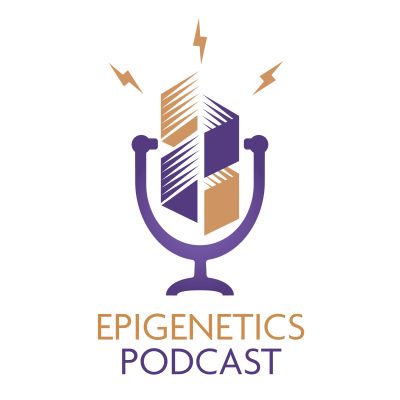episode 59: The Role of SMCHD1 in Development and Disease (Marnie Blewitt)
In this episode of the Epigenetics Podcast, we caught up with Marnie Blewitt from the Walter and Eliza Hall Institute of Medical Research to talk about her work on the role of SMCHD1 in Development and Disease.
The Laboratory of Marnie Blewitt focuses finding inhibitors or activators for the epigenetic regulator SMCHD1. Marnie Blewitt identified and characterized this protein during her PhD and the findings were published in 2008 in Nature Genetics. Since then, she and her team were able to investigate the function of this protein further. By doing so, they showed the involvement of SMCHD1 in cancer and several other diseases. Currently the lab is screening for small molecules that can act as inhibitors or activators of SMCHD1 the former as potential treatments for facioscapulohumeral muscular dystrophy, the latter for Prader Willi and Schaaf-Yang syndromes, both of which have no current targeted treatments.
References
-
Blewitt, M. E., Gendrel, A.-V., Pang, Z., Sparrow, D. B., Whitelaw, N., Craig, J. M., Apedaile, A., Hilton, D. J., Dunwoodie, S. L., Brockdorff, N., Kay, G. F., & Whitelaw, E. (2008). SmcHD1, containing a structural-maintenance-of-chromosomes hinge domain, has a critical role in X inactivation. Nature Genetics, 40(5), 663–669. https://doi.org/10.1038/ng.142
-
Leong, H. S., Chen, K., Hu, Y., Lee, S., Corbin, J., Pakusch, M., Murphy, J. M., Majewski, I. J., Smyth, G. K., Alexander, W. S., Hilton, D. J., & Blewitt, M. E. (2013). Epigenetic Regulator Smchd1 Functions as a Tumor Suppressor. Cancer Research, 73(5), 1591–1599. https://doi.org/10.1158/0008-5472.CAN-12-3019
-
Gordon, C. T., Xue, S., Yigit, G., Filali, H., Chen, K., Rosin, N., Yoshiura, K., Oufadem, M., Beck, T. J., McGowan, R., Magee, A. C., Altmüller, J., Dion, C., Thiele, H., Gurzau, A. D., Nürnberg, P., Meschede, D., Mühlbauer, W., Okamoto, N., … Reversade, B. (2017). De novo mutations in SMCHD1 cause Bosma arhinia microphthalmia syndrome and abrogate nasal development. Nature Genetics, 49(2), 249–255. https://doi.org/10.1038/ng.3765
Related Episodes
-
Epigenetics and X-Inactivation (Edith Heard)
-
Biophysical Modeling of 3-D Genome Organization (Leonid Mirny)
-
Unraveling Mechanisms of Chromosome Formation (Job Dekker)
Contact
-
Active Motif on Twitter
-
Epigenetics Podcast on Twitter
-
Active Motif on LinkedIn
-
Active Motif on Facebook
-
Email: podcast@activemotif.com
